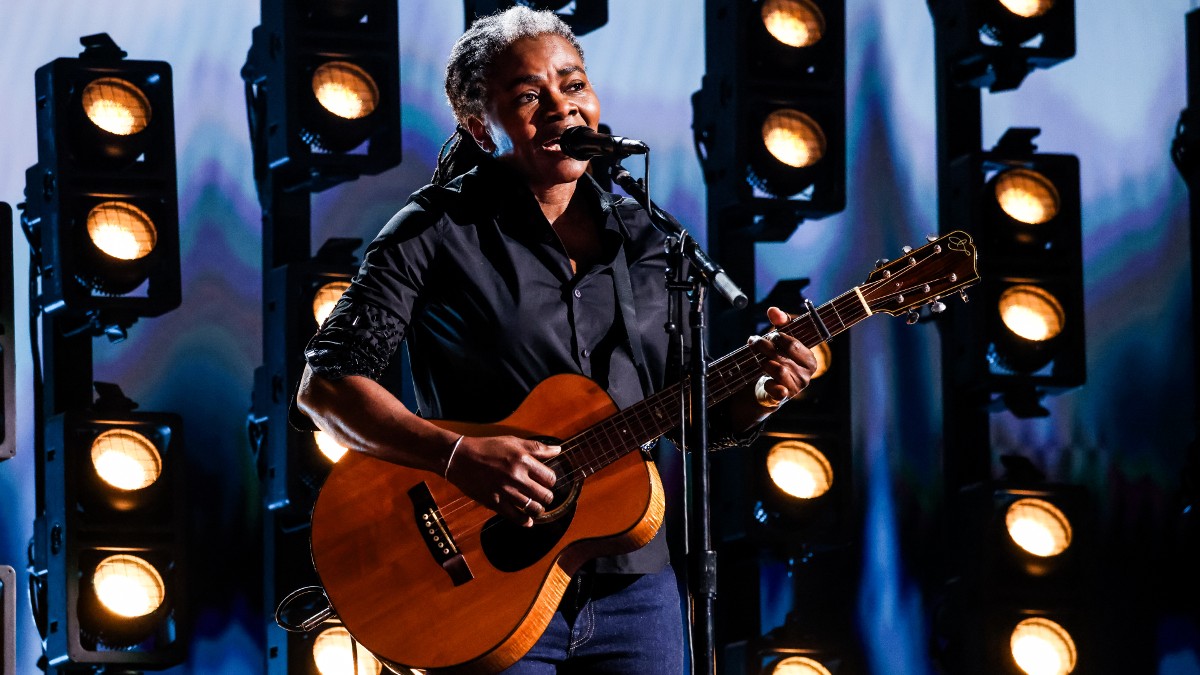The 66th Grammys was a big night for several artists. However, arguably the most unforgettable moment was when Tracy Chapman made a surprise appearance and performed “Fast Car” live for the first time in 15 years as a duet with Luke Combs.
To understand the significance of her performance, one needs to know the history behind “Fast Car.” Although Chapman first released “Fast Car” in 1988 as one of the tracks on her self-titled debut studio album, it experienced a resurgence last year when country singer Luke Combs released his cover of the song. Combs covered the song in the most respectful manner possible. Aside from his distinctly different voice, he hardly changes a thing about the song, thus simply proving to modern audiences the longevity of Chapman’s song. Chapman still owns the writer’s and publisher’s rights to the song, meaning she receives a large portion of royalties, and there’s no mistaking that she’s the original singer.
Nonetheless, the cover raises a few issues because not everyone listening to the powerful lyrics and beautiful acoustic tune will know it’s not Combs’ song. It’s difficult because it’s wonderful how much additional attention Chapman’s song gained through Combs’ cover, including becoming the first Black artist ever to win the Country Music Award for Song of the Year for “Fast Car” last year, decades after its release.
Still, listeners might miss an important layer of the song that can come only from Chapman. The poignant song is relatable to anyone who has ever felt stuck in their life situation and dreamed of getting in a fast car, driving far away, and building a better life for themselves. However, the song holds a deeper meaning for Chapman, who, as a queer Black singer, especially struggled with acceptance and feeling like she belonged. As a result, the song became a queer anthem for many.
So while Combs did his due diligence in respecting Chapman’s legacy, there’s still that concern that those listening to the song from his voice miss the deeper meaning of it as it relates to Chapman’s personal story.
How the Grammys captured Tracy Chapman’s “Fast Car” legacy

As the Grammys approached, Chapman wasn’t listed on the slate of performers. The singer has always been very private about her personal life and, in recent years, stepped back entirely from live performances. This is why it was such a jaw-dropping moment when the first guitar notes of “Fast Car” played, and the camera zoomed out to reveal it was Chapman strumming the instrument. She and Combs performed a duet of “Fast Car” for the Grammys, which had the audience, from Taylor Swift to Jelly Roll, standing and singing along in reverence.
The performance was absolutely perfect because it was wholly about Chapman. In a brief video before the performance, Combs paid respect to Chapman, describing her as an “icon” and how he was humbled to be associated with her in any way possible. Even as he performed, he kept his eyes on Chapman for the majority of his lyrics. He never once tried or came close to overpowering her, making it clear that this is her song. At the end of the performance, Combs bowed to Chapman in a touching gesture of respect. Meanwhile, as the entire jam-packed audience rose to their feet in a rapturous standing ovation, he kept his arm gestured towards her, reiterating that the standing ovation was for her.
The way that Chapman smiled at the end of the performance said everything. She’s an artist who didn’t always get the recognition she deserved in an industry that still struggles to be accepting of Black queer artists. However, up on that stage, receiving that standing ovation, she reminded everyone that she “belonged” and that she did go on to “be someone” despite the odds against her. There wouldn’t be any version of “Fast Car,” a song that has been inspiring and touching generations for decades, without Chapman, and that powerful Grammy performance ensures no one will be forgetting this fact anytime soon.
(featured image: John Shearer / Getty)









Published: Feb 5, 2024 04:52 pm